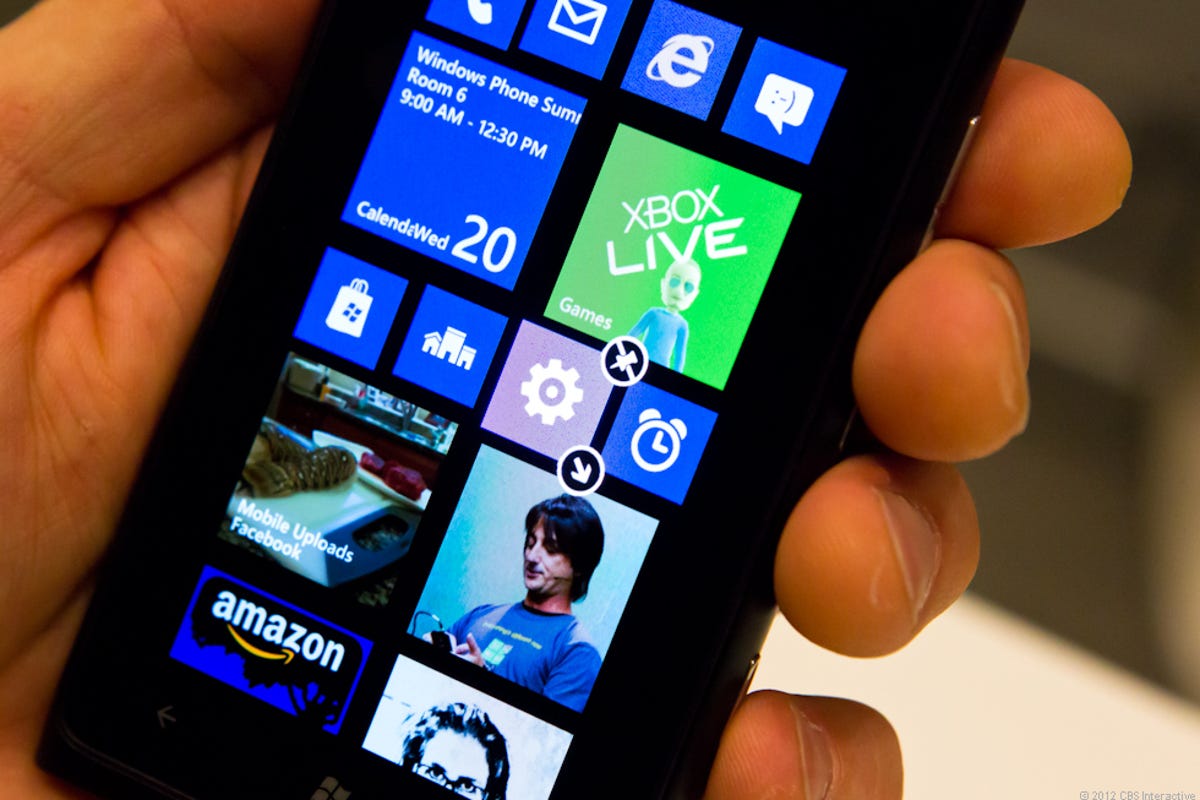You can almost sense the glee over in the Microsoft camp after Samsung was dealt an overwhelming defeat against Apple.
That’s because the jury decision against Samsung doesn’t just affect the South Korean conglomerate; it’s one that will ripple through to Google and the rest of the Android community. As a result, Microsoft’s Windows Phone looks increasingly attractive as a third legitimate alternative — one that’s relatively unfettered by legal complications.
Microsoft may not increase its market share from this incident alone, but it can cruise under the litigious gunfire while strengthening its own position against Apple. At the same time, Microsoft can offer Android vendors a haven of sorts from Apple. The software titan can also take an active role in developing Windows Phone OS as an innovative force, and work with handset manufacturers to create truly unique hardware.
With a lot of handset manufacturers now reconsidering their relationship with Android in the wake of Samsung’s defeat, many may look to Windows Phone as a way to hedge their risk and decrease their dependence on one operating system.
At least one person from Microsoft has publicly made clear his thoughts on the case. Bill Cox, marketing executive for Microsoft, couldn’t help but to revel in Samsung and Android’s misfortune in a short, but telling, tweet.
Windows Phone is looking gooooood right now.
— Bill Cox (@billcox) August 24, 2012
Patent, patent, patent
Microsoft is no stranger to patent warfare; it’s been here many times before, and in fact, collects licensing fees from many Android handset makers.
Microsoft is already engaged in a legal skirmish with Motorola, a unit of Google, over alleged infringed patents in Motorola phones and Microsoft’s Xbox 360 video game console. The battle illustrates that Microsoft is no slouch when it comes to patents and is willing to face off against anybody.
The Windows company also has the advantage of an existing cross-licensing deal with Apple, and can go toe-to-toe if any legal clashes ever do erupt. And Android, which Google doesn’t charge to use, may no longer be a free ride if Apple is going to start pushing for licensing fees. Sure, Microsoft charges fees too, but the added legal protection may be worth it.
“If Google doesn’t succeed in blunting Apple’s IP with the patents it bought through the Motorola acquisition, Microsoft could be the big winner,” said Current Analysis analyst Avi Greengart. “If you’re already paying Microsoft to build an Android phone, why not just build a Windows Phone?”
Lead with Nokia
In defining Microsoft’s latest OS as a third way, Microsoft should (and will) continue to lean on Nokia. This co-dependence isn’t just about a deal the two made to intertwine each others’ fates; it’s about Microsoft making a name for itself on the back of Nokia’s proven design innovation.
Ideally, the deal will serve as a model for how other handset manufacturers could ideally work with Microsoft.
Related stories
- Jury awards Apple more than $1B, finds Samsung infringed
- Apple’s $1,051,855,000 victory: Google, don’t tread on me
- Apple: Trial win means more than money or patents
- Samsung: Verdict is ‘loss for American consumer’
- Samsung defeat a ‘back to the drawing board’ moment
- How qualified is the Apple-Samsung jury? We found out
- Apple v. Samsung: What’s the worst that could happen?
- Full coverage: Apple v. Samsung
Take, for instance, the Nokia Lumia 900/Nokia Lumia 800/Nokia N9. The unibody, polycarbonate design reads like a piece of pop art; there’s no danger confusing its black, white, bright blue or pink hues with an iPhone.
Shades of Nokia’s 808 PureView could also appear in future Windows Phone designs — if not the giant camera bulge, then at least the camera technology found in the 41-megapixel envelope-pusher.
Although Nokia’s slow sales have spelled trouble for the Finnish handset-maker, Nokia’s self-confident forays into unique design are a point of pride, especially as the company readies its next generation of Lumia devices. The chest-thumping goes as far as Nokia’s vice president of sales and marketing thumbing his nose at Samsung’s sheer market force.
Given Samsung’s bind, the South Korean conglomerate may take another more serious look at Microsoft. Samsung has been a consistent Windows Phone partner from the beginning, but few models have their own unique groove. Indeed, few of Samsung’s Windows Phone devices really stand out, and the company has seemingly taken a halfhearted approached to the operating system.
But with Apple pressing the company hard on Android, Samsung may want to take some of its innovative ways and apply them to Windows Phone. If nothing else, the legal defeat likely has Samsung realizing that it shouldn’t be so dependent on Android.


Josh Miller/CNET
Innovate the OS
It’s never been a better time for Samsung to put more resources behind Windows Phone. Earlier this summer, Microsoft announced software changes that would finally let its operating system support common hardware like HD screens, multicore processors, and NFC.
Right now, Windows Phone has the advantage of a look and feel completely divergent from tiny icons and layered app screens. Its scrolling panorama view of apps, blocky, dynamic live tiles, and customizable theme colors play up its difference.
With Nokia’s winning hardware design under its belt, Microsoft must also move beyond playing catch-up to advance Windows Phone to new territories.
It will take fine minds, out-there ideas that may or may not pay off, and a keen vision to offer a truly compelling experience all its own. But given the opportunity that Samsung’s legal defeat has presented Microsoft, the payoff could be huge.


Now playing:
Watch this:
Apple’s patent win and what it means for you
1:44



